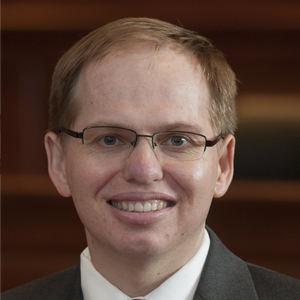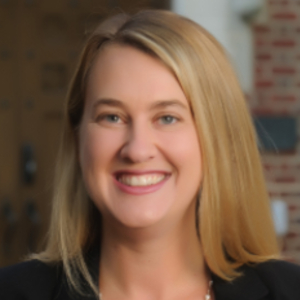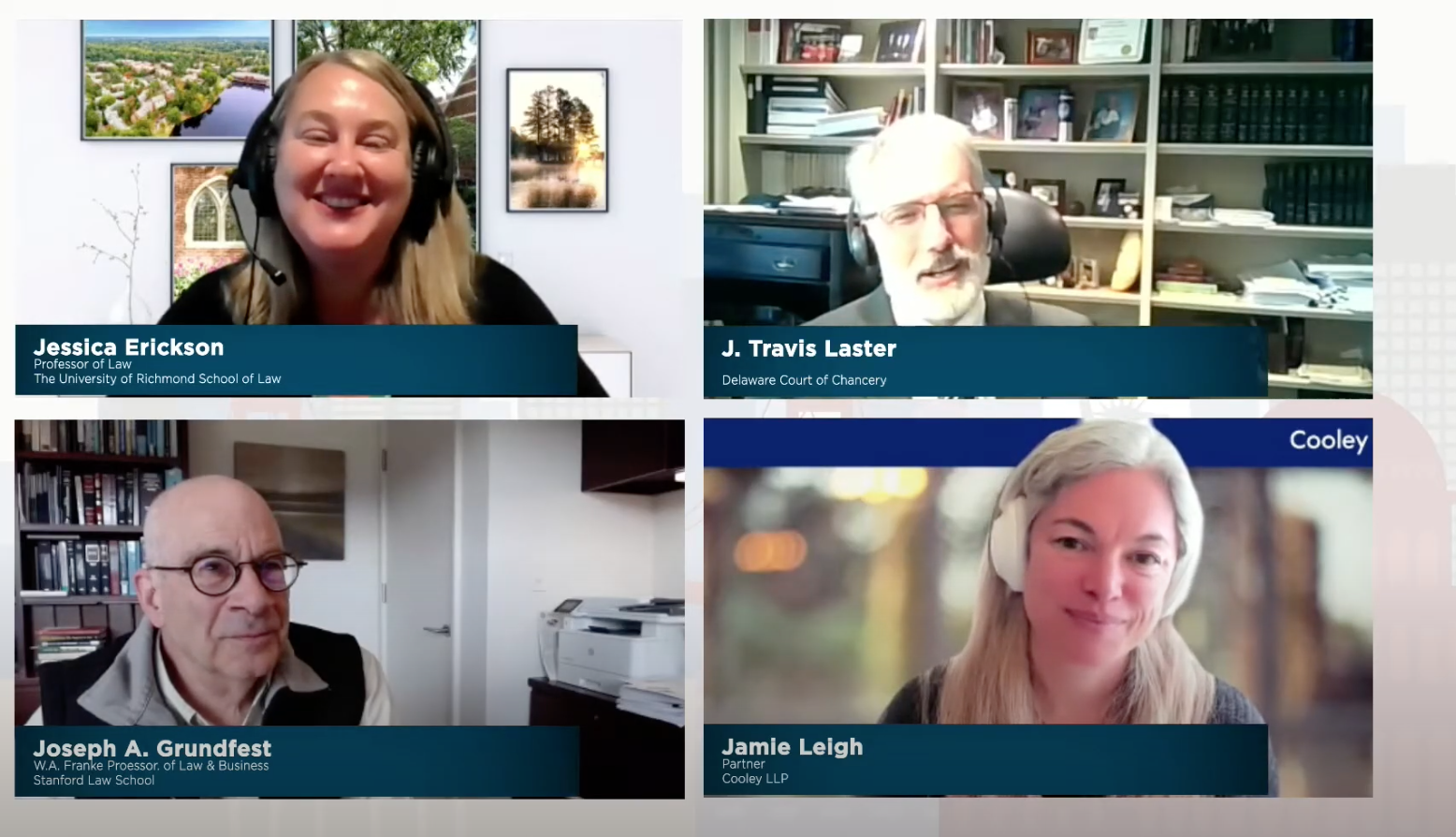The Section on Business Associations promotes the communication of ideas, interests, and activities among members and makes recommendations on matters of interest in the teaching and improvement of the law relating to business associations.
Chair: Andrew Tuch, Washington University in St. Louis School of Law
Chair-Elect: Jessica Erickson, The University of Richmond School of Law


Andrew Tuch: I write and teach in corporate law and related fields. When I taught in Australia, I attended an AALS Annual Meeting at the suggestion of a colleague and was impressed by the size of the gathering and the variety of sessions. After I moved to the United States, I was excited to get involved with the section. When I was nominated for the board, I gladly accepted for the chance to be more involved in programing. The section has provided great opportunities to meet other scholars, which I especially appreciated as a junior scholar.
Jessica Erickson: I didn’t know much about AALS when I first became a law professor. In my first or second year, I emailed the chair of the section to ask how to get involved. He told me to come to the Annual Meeting to meet people there, and that’s really how I first got involved. I was really excited several years later to be nominated to be on the leadership of the section. I have enjoyed that the section has taken a lot of steps to incorporate junior scholars in very deliberate ways, such as works-in-progress sessions.
JE: The section has an executive committee that includes a number of business law professors from around the country. It also has a chair and a chair-elect, who do more of the behind the scenes work to implement the committee’s decisions.
AT: The approach of the executive committee is quite collaborative. The chair-elect tends to take care of the programming for the Annual Meeting. The chair facilitates communications with our members.
AT: Many scholars who work outside of our field may not realize that the subject matter is broad and diverse. A lot of our members’ work focuses on the challenges facing public corporations. The political and public scrutiny of corporations has really increased in recent years. Corporate ownership patterns have transformed radically, so the shareholders are different today than they were in earlier decades. The role of proxy advisors in advising large shareholders has become a lot more visible and contested. Private capital markets have grown, providing alternatives to companies becoming public. There are all sorts of issues arising out of these challenges, and scholars in our field are addressing them. There’s also a range of methodologies that our members use. Members focus on US law, but many also do comparative legal analysis.
JE: The primary way our members interact throughout the year is on the discussion list. Members put out questions on the discussion list and also send out announcements of events. For example, there was a very active conversation this past fall about incorporating race into the teaching of business law subjects that sparked the Executive Committee’s decision to devote next year’s session at the Annual Meeting to this topic.
AT: The executive committee spends most of its time throughout the year planning the Annual Meeting. The executive committee has been meeting throughout the year, but the general section members tend to meet under the auspices of the AALS only at the Annual Meeting.
JE: The topic of the program at the Annual Meeting was about the role of corporate boards in the age of COVID-19. We were originally planning a session about Delaware law. Our membership and executive committee had been talking about that topic for a few years, so we were excited about it. Then the pandemic hit, and it frankly felt weird to be planning a session about Delaware law amidst the pandemic. I emailed Andrew and asked what he thought about changing the topic. Once we talked to the executive committee about it, and they agreed that they were on board, we made the switch.
Our program at the Annual Meeting talked about how boards of directors are responding to pressures raised by COVID-19 and what issues they might face going forward. We had three speakers and two calls for papers. In terms of our speakers, we had Jamie Leigh who runs the Mergers and Acquisitions practice at Cooley LLP, a large law firm out on the West Coast. She was suggested by one of our executive committee members, and we thought that she would be a good speaker, given so many mergers that were under negotiations or in the midst of closing when the pandemic hit. We also had Professor Joseph Grundfest from Stanford Law School, who also runs the Directors’ College, which helps train directors to serve on corporate boards. Finally, we had Vice Chancellor Travis Laster from the Delaware Court of Chancery. We were excited to have him talk about corporate boards’ fiduciary responsibilities through these challenging times.
We also had two papers selected through our call for papers. The first paper is by Martin Gelter at Fordham University School of Law and Julia Puaschunder. They wrote a paper called COVID-19 and Comparative Corporate Governance that addresses how different corporate law regimes handle some of the challenges that COVID-19 has raised. The second paper is called Back to the Future? Reclaiming Shareholder Democracy Through Virtual Annual Meetings, by Yaron Nili and Megan Shaner. That paper examines how corporate boards had to pivot pretty quickly to holding virtual meetings with their shareholders.
AT: We also had a Works-in-Progress session for junior scholars organized by committee member Megan Shaner. Papers selected from a call for papers were presented by Sue Guan from Santa Clara University School of Law, Nicole Iannarone from Drexel University, Geeyoung Min from Michigan State University, Yaron Nili from University of Wisconsin, Alexander Platt from University of Kansas, and Paige Wilson from Ohio State University.
JE: This is our third year in a row doing the Works-in-Progress session. It is my favorite part of our program because it’s a great opportunity to meet some of the junior scholars coming up in our area and have conversations with our colleagues in a smaller setting. The Works-in-Progress format is a great way to get eight to 10 people around a table talking in-depth about somebody’s paper and get to know other people working in the field.
AT: We also had senior commentators for each of the papers. We paired each speaker with two commentators. Our commentators were Afra Afsharipour from UC Davis, Ofer Eldar from Duke University, Franklin Gevurtz from University of the Pacific, Jill Gross from Pace University, Darian Ibrahim from William & Mary Law School, Benjamin Means from University of South Carolina, James Park from UCLA, Christina Sautter from Louisiana State University, Megan Shaner of University of Oklahoma, and Andrew Verstein from UCLA. Jessica and I also served as commentators.

Section on Business Associations session at the 2021 AALS Annual Meeting.
JE: I think the best way to get involved is to come to the sessions at the Annual Meeting and also be willing to serve on the executive committee. We have a process by which members can self-nominate, and we really want a diverse group of business law professors to be on our committee.
AT: We have a large executive committee, so those who want to be involved in leadership can be involved in leadership. This year every person nominated to the committee was able to join.
AT: COVID-19 has had major effects on the transactions businesses have entered into, how they fund their operations, and even how they resolve their disputes. Obviously, in-person meetings have been more difficult, so businesses have had to improvise – and so have business lawyers, making the past nine months or so incredibly busy for them.
JE: Businesses, like all sectors of our economy, are looking to see what they can do virtually. Many business have been doing things the same way for a long time. COVID-19 forced everyone to ask themselves if they can do something differently. All of a sudden, we have shareholder meetings that are taking place virtually. We have board of directors meeting virtually even more than they did before. There is certainly a possibility that this will allow more shareholders to be involved in corporate governance. If people can participate virtually, there may be a broader group of shareholders able to participate and learn more about what is happening in the companies in which they invest. I think there is a possibility we’ll see some substantial improvements as the virtual platform opens up shareholder democracy.
AT: I think this also relates to the teaching. The teaching of our area of law has certainly changed a lot. Companies’ shareholder meetings, etc. are recorded and more easily accessible, which gives us the chance to use them in our courses. In my class, we listened to snippets of online meetings, which made many of the concepts more concrete.
JE: Even many of the Delaware courts have shifted their proceedings online. A couple of Delaware judges invited law students to listen in on hearings. Vice Chancellor McCormick was great about inviting students and the public to listen to hearings. This is a great way to see the doctrines that they study in class play out in a real lawsuit.
AT: We had many discussions as a committee, and we have decided to devote our primary session at the 2022 Annual Meeting to issues of race in the teaching of business law. We’re also setting up online resources on the AALS website for our section to provide materials to assist in the discussion of these issues.
JE: We have never committed to a topic that far ahead of time. We did that because we felt like that was an important signal to our membership that we take these issues seriously. We want to make sure that we devote time and attention to them. We are also setting up a permanent resource document through the AALS website that will be available to all business law professors that relates to the teaching of business law, incorporating race, gender, and other issues of diversity, equity, and inclusion. That was sparked by one of our members on the discussion list asking a question if anybody had any suggested resources, and the conversation blossomed from there. Now it will become a permanent resource on our section website.
JE: The changes are gradual. Law school teaching is much more hands on overall than it was 20 years ago. In my class, we are constantly looking at real businesses and asking how the material we are learning would apply to those businesses. My class revolves around a series of podcasts. I feature a podcast in each unit of my class, where real entrepreneurs talk about their business. Then we focus on that company through all of our hypotheticals throughout that unit so that the students can connect what they’re reading about in the statute books and casebooks to the real world.
AT: The most significant change was this past year with the switch to online teaching. I have made a greater use of formative assessment, mainly through polls, and used various modes of content delivery. I was also more conscious of the very difficult positions that many of our students found themselves in during the pandemic. For instance, at Washington University in St. Louis, we moved one of our corporations law classes to early morning and scheduled office hours in the evenings to accommodate our students based abroad. We’re looking forward to returning to the classroom.